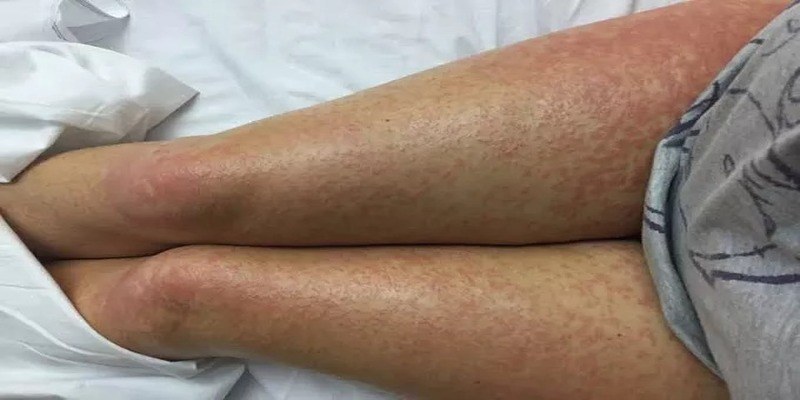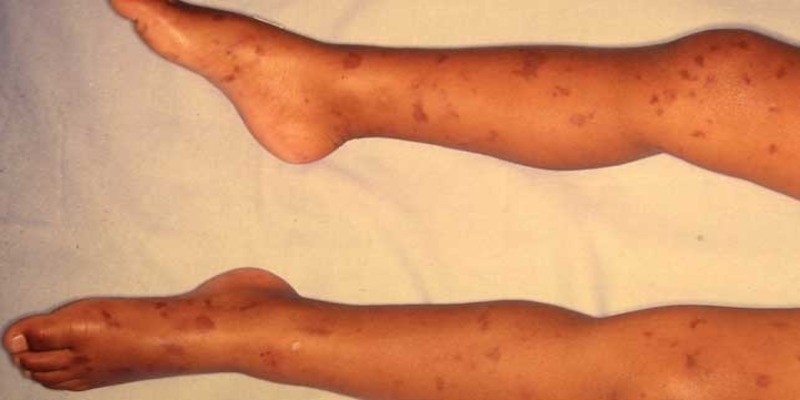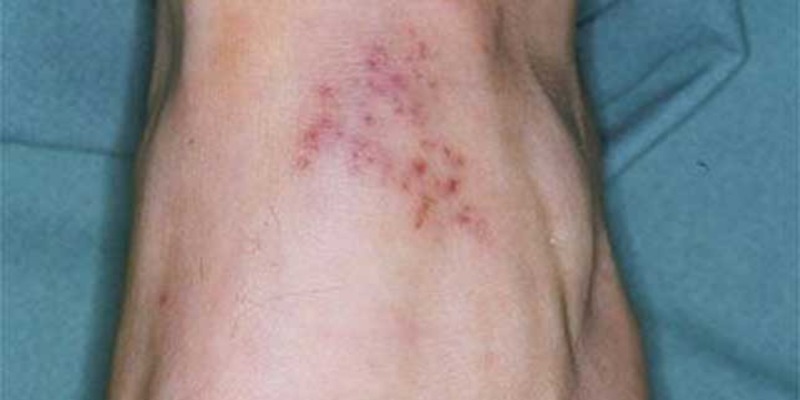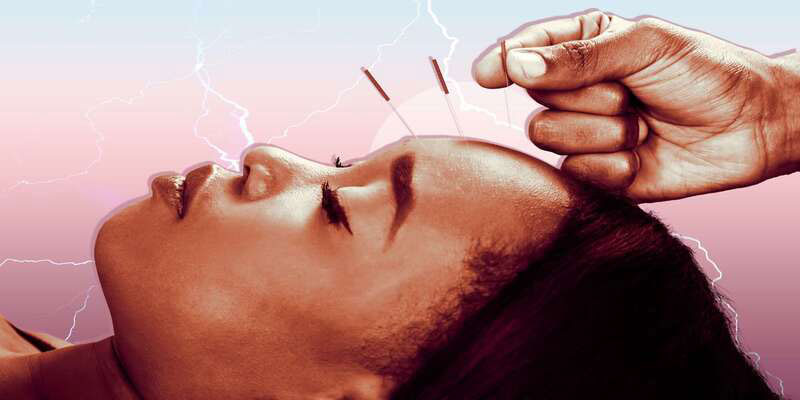Meningitis is an infection of the protective membranes around the brain and spinal cord. Infected with bacteria, the meninges become swollen and painful, causing a condition known as bacterial meningitis, which can be fatal if not treated quickly.
Inflammation of the membranes that protect the brain and spinal cord can lead to meningitis. When combined with cerebrospinal fluid, the meninges form a protective barrier around the brain and spinal cord. WHO estimates that the fatality rate from bacterial meningitis is roughly 10%.
Symptoms

Meningitis symptoms often appear 3–7 days after infection, as reported by the CDC. According to the WHO, the onset of symptoms might take anywhere from 2 to 10 days. Reliable Sourcing.
Meningitis symptoms include:
- Acute Fever
- Acute Headache
- an unexpected neck stiffening
- nausea
- vomiting
For Newborns
Infants' symptoms may vary from those seen in adults. Baby signs of bacterial meningitis include:
- insufficient diet
- having a low threshold for waking up
- sleepiness
- weeping when handling
- irritability
Glass Rash Test For Meningitis
Infection with Neisseria meningitides leads to meningococcal meningitis. Septicemia, or blood infection, can occur in patients with meningococcal meningitis. Meningococcal septicemia, sometimes called meningococcemia, is a bloodstream infection caused by meningococcus bacteria.
About half of those who have meningococcal meningitis will also develop a rash. External bleeding is a possible complication of meningococcemia. Small, flat, purple-red lesions grow on the skin due to this.
Complications
According to the World Health Organization (WHO), 1 in 5 patients with bacterial meningitis may experience long-term consequences such as:
- Deafness
- seizures
- Weakness in the Limbs
- eye problems
- difficulties with articulation, recollection, or expression
- serious brain injury
- Sepsis-related scarring and amputation
Sepsis
According to the World Health Organization, bacterial meningitis is typically accompanied by sepsis. A person should consult a doctor immediately if they have an infection that is not improving. Sepsis constitutes a critical condition requiring immediate medical attention. Among the signs and symptoms of sepsis are:
- rapid heartbeat
- Reduced blood pressure
- fever
- shivering
- Extreme chilliness
Causes
If the membranes (meninges) surrounding the brain become inflamed, we get meningitis. The meninges consist of three separate membranes:
- the tough outer layer is known as the dura mater
- the thin, intermediate layer known as the arachnoid mater
- the pia mater, a thin membrane that covers the brain and spinal cord at their apexes
Subarachnoid space refers to the region between the pia mater and the arachnoid mater.
Explaining Its Rapid Propagation

Unpasteurized dairy products and deli meats, for example, can be a vector for the transmission of bacterial meningitis, according to a reliable source. In contrast, the Centers for Disease Control and Prevention (CDC) emphasizes that bacterial meningitis often transmits from person to person.
Bacterial meningitis can be transmitted from person to person or between different types of bacteria. Furthermore, one can carry the bacterium that causes bacterial meningitis without being ill. These individuals are referred to as "carriers.
Identifying Potential Dangers
Bacterial meningitis can strike at any time in life. However, babies have an increased chance of getting bacterial meningitis. Bacterial meningitis can take several forms and is most likely to strike at a young, middle, or old age.
Pneumococcal meningitis has a higher risk in children younger than 2 years old and those with compromised immune systems. More commonly affected by meningococcal meningitis are:
- newborns
- those with compromised immune systems
- Tourists visiting nations where the disease is prevalent
Reasons To Se A Medical Professional
Seizures, unconsciousness, and even death can result from bacterial meningitis. According to rapid progression of bacterial meningitis necessitates prompt treatment.
Any symptoms of bacterial meningitis necessitate prompt medical intervention for the patient or the patient's kid.
Treatment
The World Health Organization states that a hospital stay is required to treat bacterial meningitis. Time is of the essence in this case, and treatment needs to start immediately.
Antibiotics
Antibiotics that can pass the blood-brain barrier are the first line of defense in the early treatment of bacterial meningitis. A cellular barrier called the blood-brain barrier blocks pathogenic microorganisms from reaching the brain. Bacterial meningitis can be treated with antibiotics like:
- penicillin
- ampicillin
- ceftriaxone
Prevention
Bacterial meningitis can be caused by several different microorganisms. This necessitates the use of a cocktail of preventative vaccinations. Meningococcal disease, pneumococcal disease, and H. influenzae meningitis have vaccinations available to protect against them.
Vaccine Against Meningococcal Disease
The CDC now recommends Meningococcal vaccines for children aged 11-12. The preteen vaccination available today also necessitates a booster dose at 16.
A second meningococcal vaccine dose may be given to adolescents between 16 and 18. Getting this vaccine is entirely optional, although the CDC suggests it for youth who:
- Suffer from complement component deficiency, an extremely unusual immunological issue
- use a class of drugs known as complement inhibitors
- Your Spleen is Damaged or Removed
- Suffer from sickle cell disease




